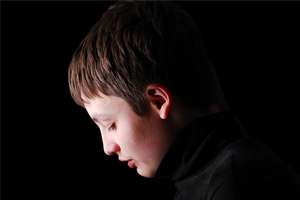It may not 'get better' for bisexual teens

The "It Gets Better" Project was launched in 2010 as an attempt to address suicides amongst lesbian, gay, bisexual and transsexual teens by recording online reminders that their lives will improve as they leave school and transition into adulthood. A new study in the Journal of Adolescent Health finds that this is not necessarily the case for bisexual teens and that a more nuanced approach to counseling might help.
"The [It Gets Better] campaign has helped many of the LGBT students that I work with in my clinical work," said lead researcher Robert Cardom of the department of educational, school, and counseling psychology at the University of Kentucky in Lexington.
"It has started conversations. Our results seem to support the 'It Gets Better' campaign's claims, while also telling us that we must do better to include bisexual individuals in our efforts to support LGBT youth and adults."
Past studies have reported that gay and lesbian teens have more symptoms of depression than heterosexual teens. Cardom and his colleagues set out to find whether depression decreased as the teens aged.
Teens were divided into groups based on their self-reported identification as heterosexual, mostly heterosexual, gay, mostly gay or bisexual. The study found that depression symptoms, namely thoughts of suicide, decreased from 42 percent to 12.3 percent as teens in all groups transitioned into adulthood and suicide attempts decreased from 15.9 to 2.9 percent. But the "mostly gay" and bisexual teens did not report a significant decrease in some measures of suicidal thoughts or behaviors.
The study did not determine why suicidal thoughts persisted in some groups, but experts offer some suggestions.
"Some bisexuals may struggle with depression later on because they don't feel accepted and supported in either lesbian and gay or straight communities," said. "Bisexual identity does not fit into the gay/straight categories most people are comfortable with."
He suggests that gay teens may find more support than bisexual teens from the LGBT community after coming out, which would encourage feelings of self-acceptance.
Sharon Horne, Ph.D., a psychologist and director of training of counseling psychology, at the University of Massachusetts in Boston, agrees that the struggle may last longer for some groups.
"Those who identify as mostly gay may be expressing an ambivalence about identifying as gay or lesbian due to living in unsupportive environments or getting messages that it's not okay to be gay or lesbian," she said. "It may take them more time to work through this ambivalence, particularly since early adulthood continues to be a time of great transition."
Counselors may need to consider the differences between gay and bisexual teens.
"Therapists must understand that the experiences of clients who identify as bisexual can be much different from the experiences of their lesbian and gay clients," said Cardom. "Without understanding the challenges related to finding acceptance and support, we can fail to assess the social support our clients are getting."
According to Dr. Horne, more research is needed.
"More in-depth exploration is needed on how the meaning of sexual identity changes for people over time and what supports are in place as people navigate this through young adulthood," she said. "But the findings from this study are very encouraging for gay and lesbian youth."
More information: R. Cardom, S. Rostosky, F. Danner, Does "It Get Better" for Depressed Sexual Minority Youth in Young Adulthood? Journal of Adolescent Health (2013) 1-3
















